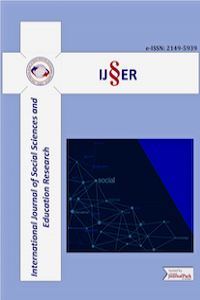Türkiye’de elektrik finansal piyasaları arasındaki nedensellik ilişkisinin analizi
Elektrik enerjisi gelişen teknoloji ile birlikte hayatın vazgeçilmez bir parçası haline gelmiştir. Elektriğe duyulan ihtiyaç giderek artarken, bu ihtiyacın karşılanabilmesi için sektörün büyümesi de kaçınılmazdır. Yatırımların sektöre çekilebilmesi için güven veren, sağlıklı işleyen bir piyasa yapısı ayrıca önem arz etmektedir. Bu nedenle piyasanın gelişimi adına dünyada ve Türkiye’de pek çok adım atılmakta, köklü değişimler yaşanmaktadır. Türkiye’de Elektrik Piyasası Kanunu (EPK) ile başlayan süreçte şeffaf, güvenilir, rekabete dayalı ve diğer ülkelerin elektrik piyasaları ile entegre bir elektrik piyasasının oluşturulması hedeflenmiştir. Piyasanın daha serbest ve daha güvenilir olabilmesi adına Türkiye Enerji Borsası kurulmasına ve ilk etapta bu borsada elektrik ticaretinin yapılmasına karar verilmiştir. Mevcut durumda Türkiye’de elektrik ticareti hem spot hem de türev piyasalarda yapılabilmektedir. Literatürde türev piyasalarda oluşan fiyatların spot fiyatlarla ilgili öncü gösterge olduğu kabul edildiği görülmekte ve bu ilişki yatırımcılar tarafından karar verme süreçlerinde gelecek öngörüsü ve risk yönetimi amaçlarıyla kullanılmaktadır. Bu düşüncenin göz önünde bulundurulduğu çalışmada, Türkiye elektrik piyasasındaki durumun tespiti için elektrik spot ve vadeli işlem piyasaları arasındaki nedensellik ilişkisi Granger nedensellik testi ile incelenmiştir. Yapılan analiz sonucunda piyasada çift yönlü nedensellik ilişkisinin varlığı tespit edilmiştir.
Anahtar Kelimeler:
Spot fiyatlar, vadeli işlem fiyatları, Türkiye elektrik piyasası, nedensellik analizi
Causality analysis of Turkish electricity financial markets
Electricity energy is an indispendable part of life with continuously improving technology. Growth of the sector is unavoidable due to the increasing need of electricity. Properly functioning market structure is also important to attract investments in the sector. Therefore, plenty of steps are taken and essential changes are being done.The process that starting with the Electricity Market Law and aims to have an electricity market that is clear, reliable, competitive, and integrated with electricity markets of other countries. Turkish Energy Market was decided to establish the name of more liberal and more reliable electricity market. Only electricity trading is going to be done in this market at the first step. Following the developments and changes lasted long years, electricity trading is possible both in spot and derivative markets in Turkey. It is accepted that the prices of derivatives are leading indicators of spot prices and this relationship is used for the purpose of forecasting and risk management by the investors. Taking into consideration of this theory, relationship between electricity spot and futures markets were examined with granger causality test to determine the situation in Turkish electricity market. As a result, bi-directional causality relationship was specified in the market.
___
- Accenture, “Türkiye Enerji Piyasası, Türkiye Elektrik Piyasasında Elektrik Ticareti” www.accenture.com, 10.10.2014
- Atiyas, İ., (2006), “Elektrik Sektöründe Serbestleşme ve Düzenleyici Reform”,Tesev Yayınları, İstanbul.
- Ballestera, J.M.,Climenta F., Furió D., (2012), “EmpiricalRelationshipsBetween Spot, Futures And ForwardPricesTradedInThe Iberian Electricity Market (MIBEL)” http://www.alde.es/encuentros/anteriores/xveea/trabajos/b/pdf/136.pdf, (11.12.2014).
- Boisseleau, F., (2004), “The Role of Power Exchanges for the Creation of a Single European Electricity Market: Market Design and Market Regulation”, PhD Thesis, University of Paris IX Dauphine, Delft University Press.
- Botterud, A.,Bhattacharyya, A.K.,Ilıc, M. (2002), “Futures And Spot Prices - An Analysis Of The Scandinavian Electricity Market” Proceedings of the 34th Annual North American Power Symposium (NAPS 2002); Tempa AZ- USA, October.
- Demirci, E., (2010), “Enerji Vadeli İşlemleri Ve Türkiye’de Elektrik Piyasasına İlişkin Bir Uygulama”, Doktora Tezi, İstanbul Üniversitesi Sosyal Bilimler Esnstitüsü, İstanbul.
- Feng W.,Liu S., Lai M., Deng X., (2007), “Empirical Research on Price Discovery Efficiency in Electricity Futures Market” Power Engineering Society General Meeting, IEEE, 24-28 June.
- Granger, C. W. J., (1969), “Investigating Causal Relations by Econometric Models and Cross-spectral Methods”, Econometrica 37 (3): 424–438.
- Gujarati, D. N., (2001), Temel Ekonometri, Çev. Şenesen,Ü., ve Göktürk Şenesen, G., Literatür Yayınclık, İstanbul.
- Karan, M.B., (2013), Yatırım Analizi ve Portföy Yönetimi, 4. Baskı, Gazi Kitabevi, Ankara.
- Reel, Y., (2010), “Elektrik Sektörünün Regülasyonu”, Enerji, Piyasa ve Düzenleme, Cilt:1, Sayı:2, ss.194-218.
- Sevüktekin,M. ve Çınar, M. (2014), Ekonometrik Zaman Serileri Analizi (Eviews Uygulamalı), Dora Yayıncılık, Bursa.
- Weron, Rafal ve Zator, M. (2014), “Revisiting The Relationship Between Spot And Futures Prices In The Nord Pool Electricity Market”, Energy Economics, 44, pp.178-190
- Worthington, A. ve Higgs, H. (2004), “The Relationship Between Energy Spot And Futures Prices: Evidence From The Australian Electricity Market”, ICFAI Journal of Applied Economics 3(4) pp. 65-82.
- www.borsaistanbul.com,12.08.2014
- www.epias.com.tr, 23.09.2015
- www.tedas.gov.tr, 01.07.2014
- Yayın Aralığı: Yılda 4 Sayı
- Başlangıç: 2015
- Yayıncı: Mahmut DEMİR
Sayıdaki Diğer Makaleler
Nostalji markalaşmasında post-modern pazarlama örneği: Retro müzik
Kırım sorunu bağlamında Rusya-Ukrayna ilişkilerinin analizi
A. Sait Sönmez, Harun Bıçakçı, Cuma Yıldırım
Enflasyon-nispi fiyat değişkenliği ilişkisi: Türkiye örneği
Ses eğitimcisi bakışı ile etkili ve doğru konuşma
